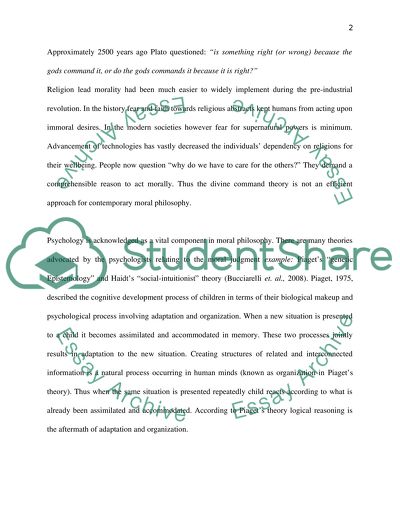Cite this document
(“What does it mean to act morally Term Paper Example | Topics and Well Written Essays - 1500 words”, n.d.)
What does it mean to act morally Term Paper Example | Topics and Well Written Essays - 1500 words. Retrieved from https://studentshare.org/philosophy/1474450-what-does-it-mean-to-act-morally
What does it mean to act morally Term Paper Example | Topics and Well Written Essays - 1500 words. Retrieved from https://studentshare.org/philosophy/1474450-what-does-it-mean-to-act-morally
(What Does It Mean to Act Morally Term Paper Example | Topics and Well Written Essays - 1500 Words)
What Does It Mean to Act Morally Term Paper Example | Topics and Well Written Essays - 1500 Words. https://studentshare.org/philosophy/1474450-what-does-it-mean-to-act-morally.
What Does It Mean to Act Morally Term Paper Example | Topics and Well Written Essays - 1500 Words. https://studentshare.org/philosophy/1474450-what-does-it-mean-to-act-morally.
“What Does It Mean to Act Morally Term Paper Example | Topics and Well Written Essays - 1500 Words”, n.d. https://studentshare.org/philosophy/1474450-what-does-it-mean-to-act-morally.


